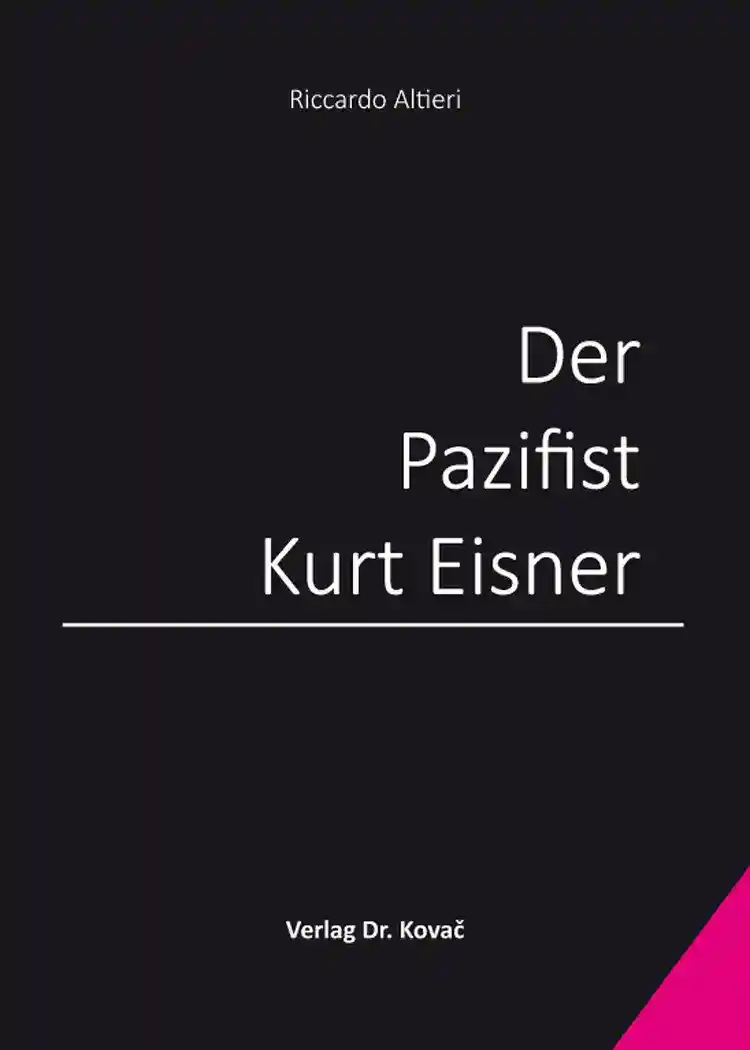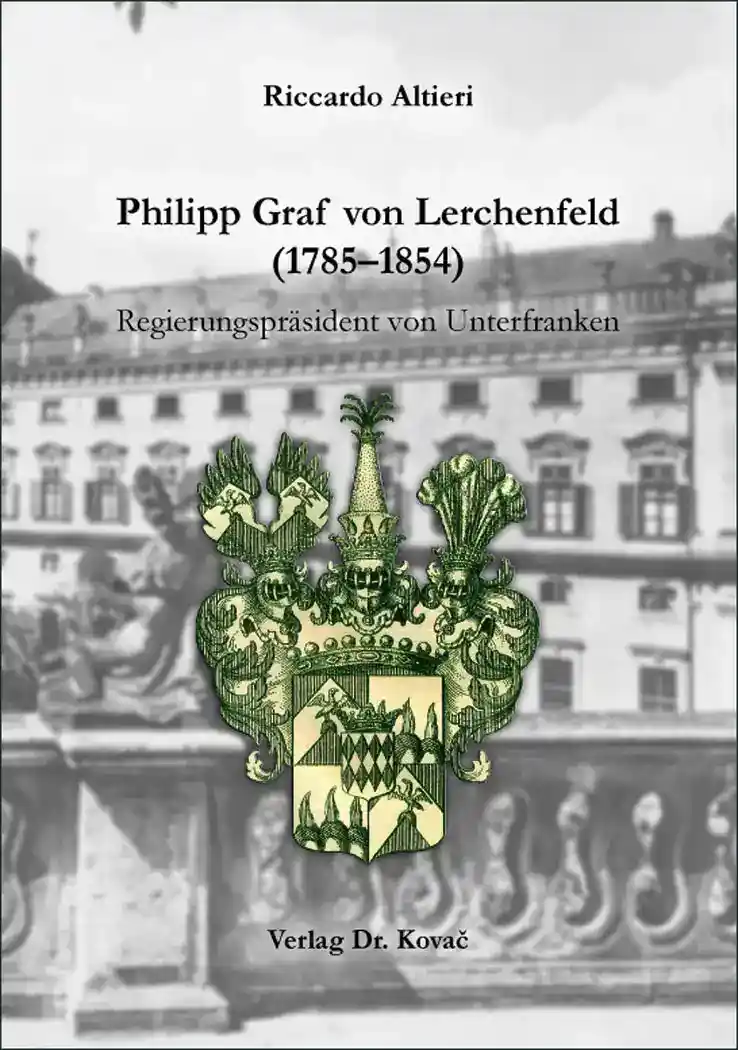Riccardo AltieriDer Pazifist Kurt Eisner
Studien zur Zeitgeschichte, volume 95
Hamburg 2015, 198 pages
ISBN 978-3-8300-8201-9 (print) |ISBN 978-3-339-08201-5 (eBook)
Rezension
[...] Insgesamt liefert das vorliegende Buch einen guten Überblick über einen spezifischen Aspekt im Leben des Politikers Kurt Eisner. [...]
About this book deutschenglish
The First World War, a war unlike any others before, created innovations whose only objective was to kill more people than ever before: nerve gas, great armies, machine guns, tanks – all of them completely changed the situation on the battlefield. The enormous number of victims and the cruelty of the war generated countless pacifists, peace movements and anti-war organizations. The resistance against the Great War was strongest in the bourgeois and left-wing socialist milieu. Kurt Eisner, a social democrat from Berlin, who worked as a journalist in Munich during the war, changed his perspective on it drastically after the July Crisis of the summer of 1914. He started to fight against the warmongers in his own country and the international supporters of war. He was elected Prime minister of Bavaria shortly after the end of the war, which can be seen as his biggest triumph. After about 100 days in office many people envied him his success. An up to that day unknown right-wing extremist assassinated Kurt Eisner on his way to parliament in February 1919. During his entire time in office he experienced severe resistance from many different groups, ranging in political affiliation from moderate social democrats to right-wing nationalists, who were to follow Adolf Hitler shortly afterwards. His socialist and pacifist beliefs and Jewish background were unacceptable to many. It was the latter that became especially important in the campaigns against him. Many of the hundreds of hateful postcards and letters that reached Eisner in the years 1918/1919 are anti-Semitic. They were analyzed in detail by Riccardo Altieri of the University of Würzburg, whose report on his findings does not only offer information on the documents themselves, but also an excellent overview regarding the historical background and a thorough description of Eisner’s relationship to pacifist ideas and movements.Keywords
AntisemitismusBayernErster WeltkriegFriedensbewegungJanuarstreikKurt EisnerNeueste GeschichteOktoberrevolutionPazifismusSchmähbriefeSozialismusUSPDWiderstandZeitgeschichteIhr Werk im Verlag Dr. Kovač

Möchten Sie Ihre wissenschaftliche Arbeit publizieren? Erfahren Sie mehr über unsere günstigen Konditionen und unseren Service für Autorinnen und Autoren.
Weiteres Buch des Autors
Philipp Graf von Lerchenfeld (1785–1854)
Regierungspräsident von Unterfranken
Hamburg 2017, ISBN 978-3-8300-9423-4 (Print) |ISBN 978-3-339-09423-0 (eBook)

